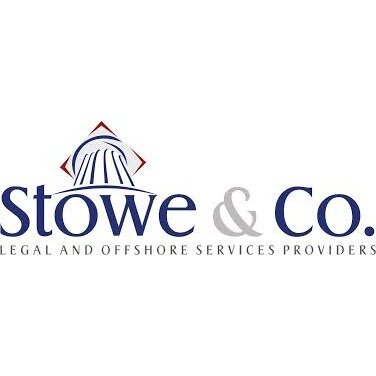Best Landlord & Tenant Lawyers in Dominica
Share your needs with us, get contacted by law firms.
Free. Takes 2 min.
Free Guide to Hiring a Real Estate Lawyer
Or refine your search by selecting a city:
List of the best lawyers in Dominica
About Landlord & Tenant Law in Dominica:
Landlord & Tenant law in Dominica governs the rights and responsibilities of both landlords and tenants. It covers issues such as rental agreements, rent payment, property maintenance, evictions, and disputes between landlords and tenants.
Why You May Need a Lawyer:
You may need a lawyer in Landlord & Tenant matters if you are facing issues such as rental disputes, lease agreement violations, eviction proceedings, property damage disputes, or any other legal matters related to renting or leasing property in Dominica.
Local Laws Overview:
In Dominica, the Landlord & Tenant Act, Chapter 4:01 governs the relationship between landlords and tenants. This Act outlines the rights and obligations of both parties, including rent payment, property maintenance, eviction procedures, and dispute resolution mechanisms.
Frequently Asked Questions:
1. Can a landlord increase rent at any time?
Landlords in Dominica can only increase rent after giving proper notice as outlined in the rental agreement or the Landlord & Tenant Act.
2. What should I do if my landlord is not maintaining the property?
If your landlord is not fulfilling their duty to maintain the property, you can request repairs in writing. If the landlord fails to address the issue, you may have legal options to enforce maintenance.
3. How much notice is required for eviction in Dominica?
The Landlord & Tenant Act specifies the notice period required for eviction. It is essential to follow the legal procedures outlined in the Act to avoid any disputes.
4. Can a landlord enter the rented property without permission?
A landlord must obtain the tenant's consent before entering the rented property, except in cases of emergency or inspections agreed upon in the rental agreement.
5. Can a tenant sublet the rented property to someone else?
Tenants in Dominica usually need the landlord's permission to sublet the property. It is crucial to review the rental agreement for any restrictions on subletting.
6. What should I do if I cannot pay rent on time?
If you are facing financial difficulties and cannot pay rent on time, communicate with your landlord as soon as possible to discuss potential solutions. It is essential to address the issue promptly to avoid legal consequences.
7. Can a landlord evict a tenant without a valid reason?
Landlords in Dominica can only evict tenants for valid reasons specified in the Landlord & Tenant Act. It is crucial to understand your rights as a tenant to prevent wrongful eviction.
8. How can I resolve a dispute with my landlord or tenant?
If you are unable to resolve a dispute with your landlord or tenant amicably, you may seek legal assistance to mediate the issue or pursue legal action if necessary.
9. Are security deposits refundable in Dominica?
Security deposits are usually refundable in Dominica, subject to deductions for any damages or unpaid rent as stipulated in the rental agreement.
10. Can a landlord refuse to return the security deposit?
If a landlord refuses to return the security deposit without valid reasons, tenants may seek legal recourse through the appropriate legal channels to recover their deposit.
Additional Resources:
For further assistance with Landlord & Tenant matters in Dominica, you may contact the Dominica Bar Association or the Ministry of Housing and Urban Development for guidance and support.
Next Steps:
If you require legal assistance in Landlord & Tenant issues in Dominica, it is advisable to consult with a qualified lawyer who specializes in real estate law. They can provide you with legal advice, represent you in negotiations or court proceedings, and help protect your rights as a landlord or tenant.
Lawzana helps you find the best lawyers and law firms in Dominica through a curated and pre-screened list of qualified legal professionals. Our platform offers rankings and detailed profiles of attorneys and law firms, allowing you to compare based on practice areas, including Landlord & Tenant, experience, and client feedback.
Each profile includes a description of the firm's areas of practice, client reviews, team members and partners, year of establishment, spoken languages, office locations, contact information, social media presence, and any published articles or resources. Most firms on our platform speak English and are experienced in both local and international legal matters.
Get a quote from top-rated law firms in Dominica — quickly, securely, and without unnecessary hassle.
Disclaimer:
The information provided on this page is for general informational purposes only and does not constitute legal advice. While we strive to ensure the accuracy and relevance of the content, legal information may change over time, and interpretations of the law can vary. You should always consult with a qualified legal professional for advice specific to your situation.
We disclaim all liability for actions taken or not taken based on the content of this page. If you believe any information is incorrect or outdated, please contact us, and we will review and update it where appropriate.
Browse landlord & tenant law firms by city in Dominica
Refine your search by selecting a city.










